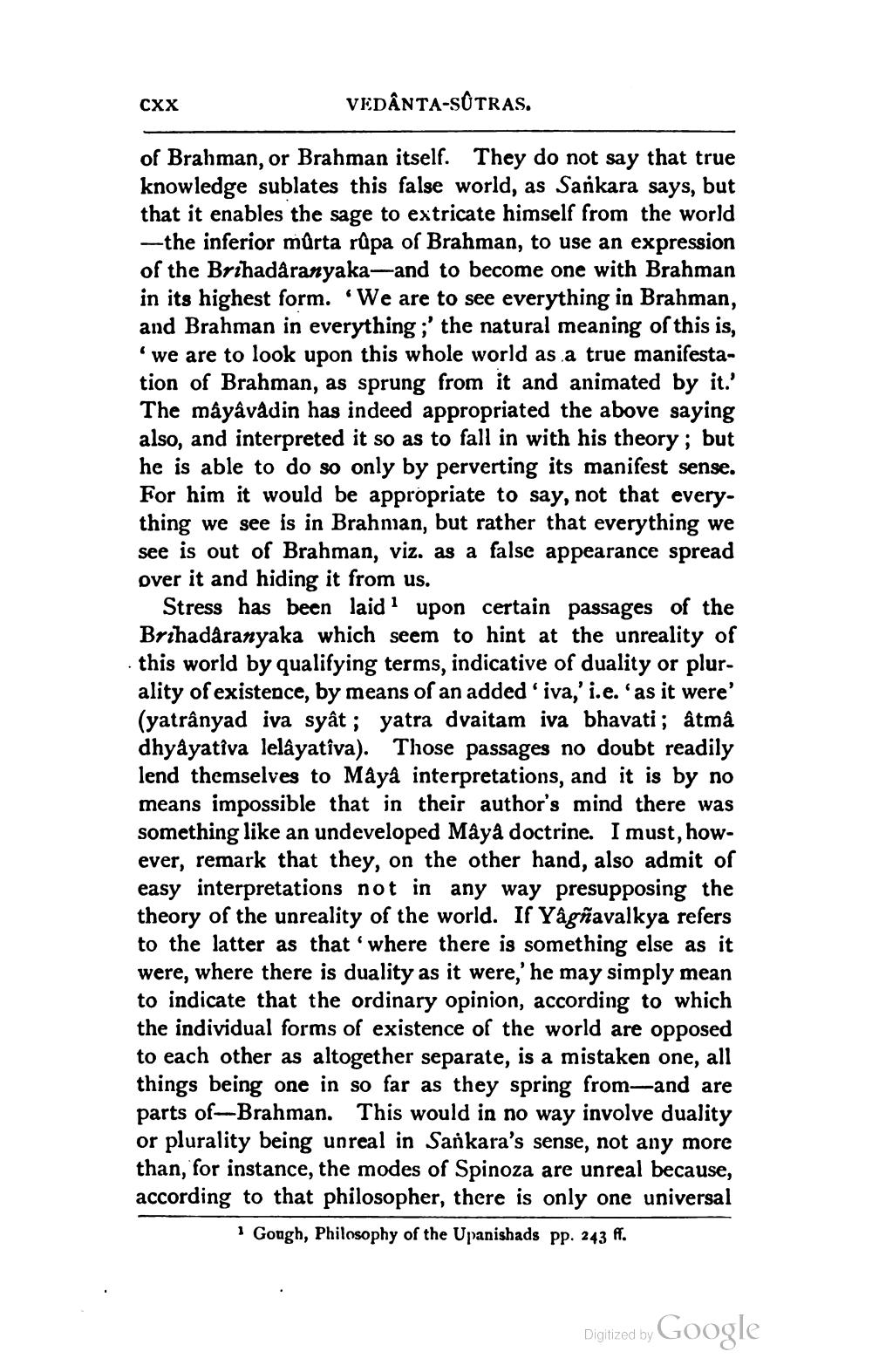________________
cxx
VEDÂNTA-SÛTRAS.
of Brahman, or Brahman itself. They do not say that true knowledge sublates this false world, as Sankara says, but that it enables the sage to extricate himself from the world
-the inferior mûrta rûpa of Brahman, to use an expression of the Brihadaranyaka-and to become one with Brahman in its highest form. We are to see everything in Brahman, and Brahman in everything ;' the natural meaning of this is,
we are to look upon this whole world as a true manifestation of Brahman, as sprung from it and animated by it.' The mâyâvâdin has indeed appropriated the above saying also, and interpreted it so as to fall in with his theory ; but he is able to do so only by perverting its manifest sense. For him it would be appropriate to say, not that everything we see is in Brahman, but rather that everything we see is out of Brahman, viz. as a false appearance spread over it and hiding it from us.
Stress has been laid upon certain passages of the Brihadaranyaka which seem to hint at the unreality of this world by qualifying terms, indicative of duality or plurality of existence, by means of an added 'iva,' i.e. as it were' (yatrânyad iva syât; yatra dvaitam iva bhavati; atma dhyâyatîva lelâyativa). Those passages no doubt readily lend themselves to Måyå interpretations, and it is by no means impossible that in their author's mind there was something like an undeveloped Måyå doctrine. I must, however, remark that they, on the other hand, also admit of easy interpretations not in any way presupposing the theory of the unreality of the world. If Yågñavalkya refers to the latter as that where there is something else as it were, where there is duality as it were,' he may simply mean to indicate that the ordinary opinion, according to which the individual forms of existence of the world are opposed to each other as altogether separate, is a mistaken one, all things being one in so far as they spring from-and are parts of-Brahman. This would in no way involve duality or plurality being unreal in Sankara's sense, not any more than, for instance, the modes of Spinoza are unreal because, according to that philosopher, there is only one universal
· Gough, Philosophy of the Upanishads pp. 243 fi.
Digitized by Google
Digitized by




